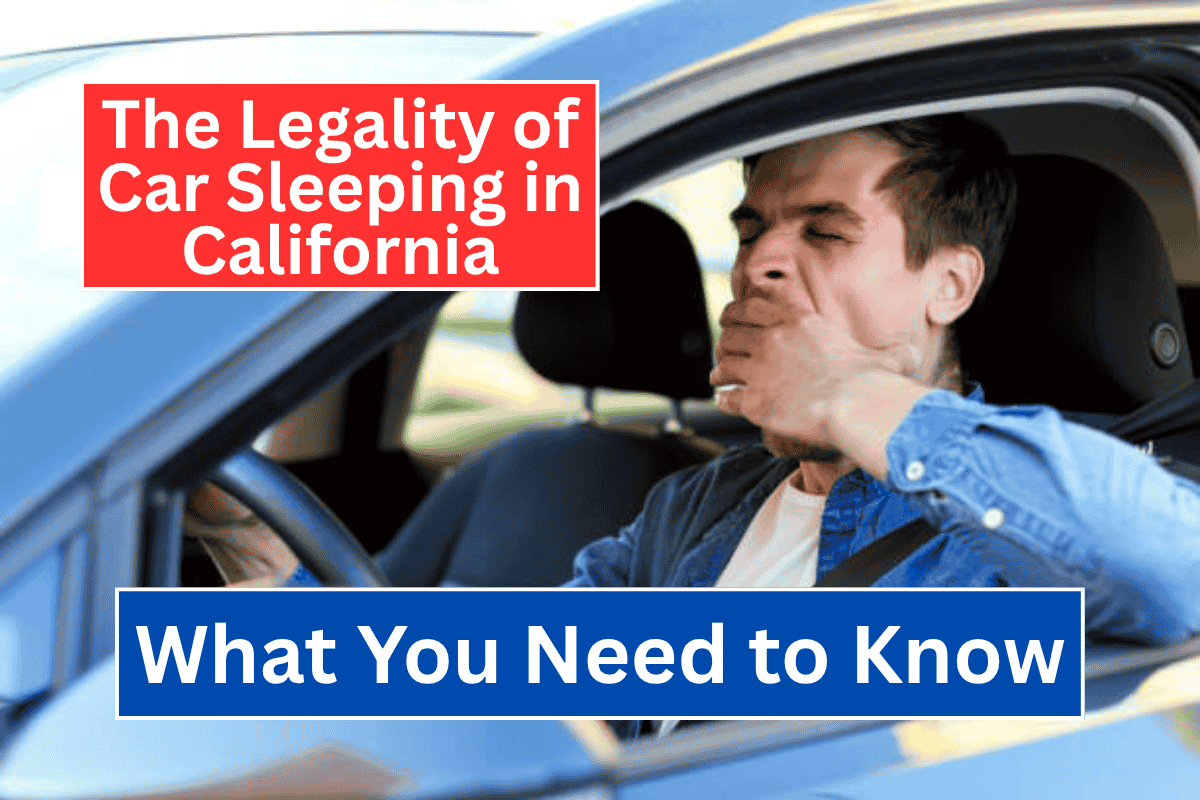Traveling by car in California is fun and full of adventure. Many people wonder if it’s okay to sleep inside their car at night. The good news is that California doesn’t have a statewide law against sleeping in cars.
But, rules can be different depending on where you are. Let’s explore what you need to know to keep your road trip safe and stress‑free.
Local Rules vs. State Law
California law doesn’t ban sleeping in your car. That said, each city or county may have its own rules. For example, some places don’t let you stay parked overnight on public roads. You might also see time limits in parking lots. These local rules are meant to keep communities clean, safe, and orderly.
Living in Your Car: Is It Illegal?
In lots of places, using a car as a home is not allowed. Laws like loitering or vagrancy may apply. This is to avoid people sleeping on streets or in public spaces. Cities set fines or penalties to stop this kind of living. The laws no matter where you go.
Fines, Penalties & Vehicle Impoundment
If you break local rules, you might get a fine—usually between $50 and $200. Sometimes, doing it again can lead to higher fines or even having your car towed and impounded. That can cost a lot, not to mention the extra stress.
Where Sleeping in Your Car Is Allowed
Some cities offer safe parking spots designed for people sleeping in their cars. For example, San Francisco has programs that let you park overnight in certain areas.
These spots are monitored and help you stay within the law and stay safe. Private properties—like business or church parking lots—might also allow overnight stays if they give permission.
Public vs. Private Property
Sleeping in a car is different depending on the land. Public streets and rest areas have local signs and rules you must follow. On private property, you need permission from the owner. Being on private land without permission could get you in trouble for trespassing.
Safe Parking Programs & Signs to Watch for
Many areas now have official “Safe Parking Programs.” They set places where you can legally sleep in your vehicle. These areas are safer and follow rules. Always watch for “No Overnight Parking” signs—ignoring them could lead to being fined or towed.
What Happens When an Officer Finds You
If a police officer finds you sleeping in your car, stay calm. Be polite and follow their questions. They might ask for ID and car papers.
They’ll also ask why you are there. Be honest—whether you’re on a long drive or just facing an unexpected delay. Officers may then tell you if local laws restrict your stay. Some might even check if you are safe and okay.
Should You Crack a Window While Sleeping?
Getting fresh air can help, but you don’t always need to crack a window. Cars can fill with fresh air even when fully closed. On hot days, a small crack can lower the temperature.
But don’t open it too much, or someone might reach in. If you are parked safely and the weather’s cool, you can keep windows closed.
Tips to Stay Legal & Safe
Always check local rules before you rest anywhere at night.
If available, use safe parking programs or private lots with permission.
Look for “No Overnight Parking” signs.
Be polite and honest if an officer stops by.
Choose well-lit, safe spots—like rest stops or monitored lots.
Stay inside the car at night for safety.
Sleeping in your car in California isn’t banned by state law, but local rules can stop it. Cities set limits to keep streets safe. To stay out of trouble, always check rules before parking overnight. Use safe‑parking programs or private lots with permission.
Pay attention to signs, and always pick a safe, well‑lit location. If stopped by law enforcement, be calm, polite, and honest. With some planning and care, you can have a safe and legal road‑trip break.
Long drives can get tiring. If you ever need to sleep in your car, know this: California doesn’t ban it everywhere, but some cities do. Before you park for the night, check local rules or find “Safe Parking Programs.” Get permission if you’re on private property. Watch for signs and pick safe spots.
Be polite if officers ask questions. A little homework and good habits can keep your trip smooth, legal, and safe—so you can rest easy on your journey.












